
Maupiti: A Hidden Gem in French Polynesia
Maupiti is a small, untouched paradise in the heart of French Polynesia. Often overshadowed by its more famous neighbor, Bora Bora, Maupiti offers a serene and authentic Polynesian experience. The island is known for its stunning turquoise lagoon, pristine beaches, and lush greenery. Visitors can enjoy the slow pace of island life, where the main activities include snorkeling, hiking, and exploring the charming local villages. One of Maupiti's highlights is the breathtaking Mount Teurafaatiu. A hike to the summit is a must for adventure enthusiasts, offering panoramic views of the island and its surrounding coral reefs. The climb is moderately challenging but well worth the effort. For those who prefer water activities, the island's lagoon is perfect for snorkeling and swimming with manta rays. The coral gardens are teeming with colorful fish and marine life, making it a snorkeler's paradise. The island's small population and limited tourist infrastructure mean that visitors can experience a more authentic side of Polynesian culture. Local guesthouses, known as pensions, offer a warm and welcoming stay with traditional Polynesian hospitality. The island's few restaurants serve delicious local cuisine, with fresh seafood being a highlight. A visit to Maupiti is like stepping back in time, offering a rare glimpse into the unspoiled beauty and tranquility of French Polynesia.
Local tips in Maupiti
- Book your accommodation in advance as options are limited and fill up quickly.
- Bring cash, as there are no ATMs on the island and many places do not accept credit cards.
- Pack reef-safe sunscreen to protect the delicate marine life when snorkeling.
- Rent a bicycle to explore the island at your own pace; it's the best way to get around.
- Try the local delicacy, poisson cru, a Polynesian dish made with raw fish marinated in coconut milk and lime.
Maupiti: A Hidden Gem in French Polynesia
Maupiti is a small, untouched paradise in the heart of French Polynesia. Often overshadowed by its more famous neighbor, Bora Bora, Maupiti offers a serene and authentic Polynesian experience. The island is known for its stunning turquoise lagoon, pristine beaches, and lush greenery. Visitors can enjoy the slow pace of island life, where the main activities include snorkeling, hiking, and exploring the charming local villages. One of Maupiti's highlights is the breathtaking Mount Teurafaatiu. A hike to the summit is a must for adventure enthusiasts, offering panoramic views of the island and its surrounding coral reefs. The climb is moderately challenging but well worth the effort. For those who prefer water activities, the island's lagoon is perfect for snorkeling and swimming with manta rays. The coral gardens are teeming with colorful fish and marine life, making it a snorkeler's paradise. The island's small population and limited tourist infrastructure mean that visitors can experience a more authentic side of Polynesian culture. Local guesthouses, known as pensions, offer a warm and welcoming stay with traditional Polynesian hospitality. The island's few restaurants serve delicious local cuisine, with fresh seafood being a highlight. A visit to Maupiti is like stepping back in time, offering a rare glimpse into the unspoiled beauty and tranquility of French Polynesia.
When is the best time to go to Maupiti?
Iconic landmarks you can’t miss
Maupiti Diving Center
Experience unforgettable diving moments at Maupiti Diving Center, where the vibrant marine life of French Polynesia awaits.
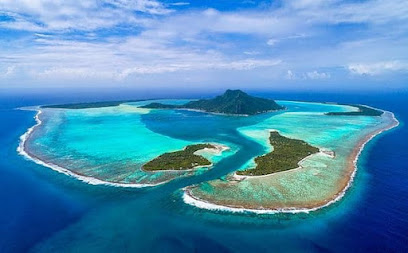
Maupiti Island
Experience the untouched beauty of Maupiti Island in French Polynesia, where stunning beaches and vibrant marine life await your discovery.
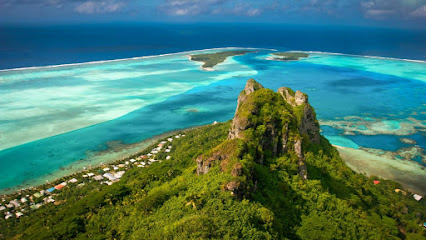
Pension Taravanui
Discover the serene beauty of Maupiti at Pension Taravanui, a charming island retreat offering cozy accommodations and breathtaking lagoon views.
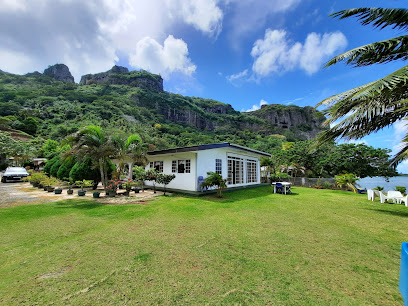
Mt. Teurafaatiu Summit
Experience the breathtaking views and adventure at Mt. Teurafaatiu on Maupiti Island, the ultimate hiking destination in French Polynesia.
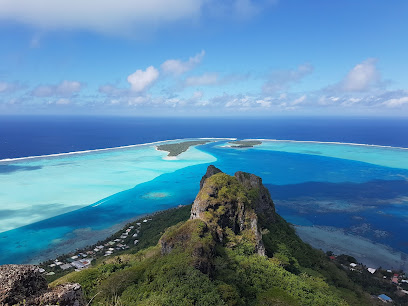
Pension Papahani
Experience the charm of Maupiti at Pension Papahani, your serene oasis in the heart of French Polynesia.

Pension Tereia
Experience authentic Polynesian hospitality at Pension Tereia, your serene getaway in the heart of Maupiti's breathtaking landscapes.
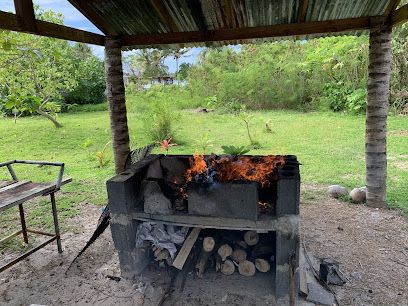
Pension Tautiare Village
Experience the serene beauty and warm hospitality of Pension Tautiare Village on Maupiti Island, a hidden paradise in French Polynesia.
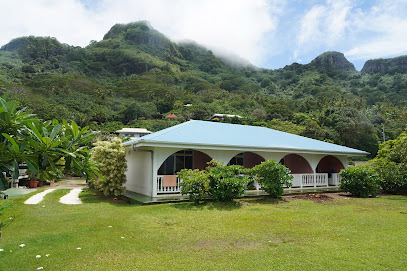
Maupiti Holiday
Discover the tranquility of Maupiti Holiday in French Polynesia, where luxurious lodging meets breathtaking natural beauty and rich cultural experiences.
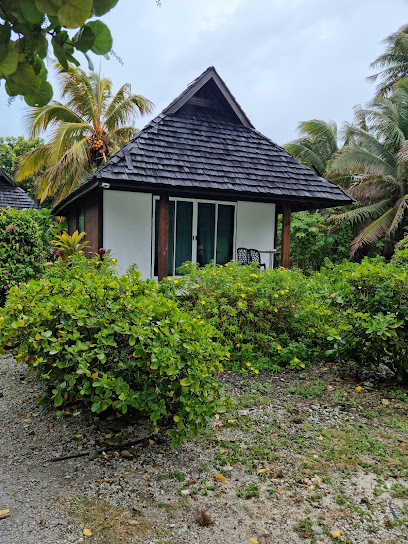
Maupiti Camping
Discover breathtaking views and outdoor adventures at Maupiti Camping, the perfect escape for nature lovers in French Polynesia.
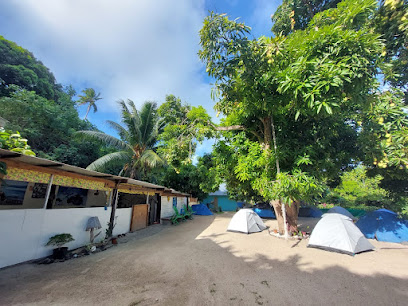
Terei'a Beach
Discover the serene beauty of Terei'a Beach, a hidden paradise in French Polynesia, ideal for relaxation, snorkeling, and breathtaking sunsets.
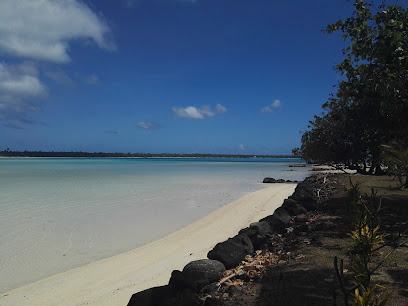
Fare Pae'ao / Maupiti trip
Experience the tranquility of Fare Pae'ao in Maupiti, where relaxation meets adventure in breathtaking French Polynesia.
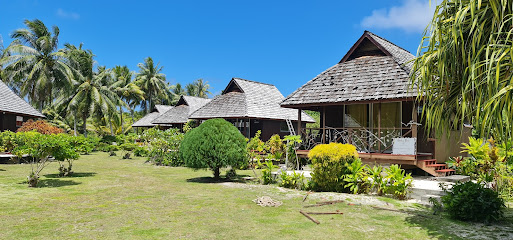
Le Kuriri
Discover tranquility at Le Kuriri, a charming holiday home on Maupiti Island, surrounded by the stunning beauty of French Polynesia.
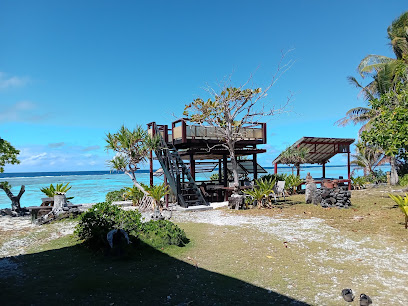
Pension Teheimana
Discover the untouched beauty of Maupiti at Pension Teheimana, where serene lodging meets authentic Polynesian hospitality.
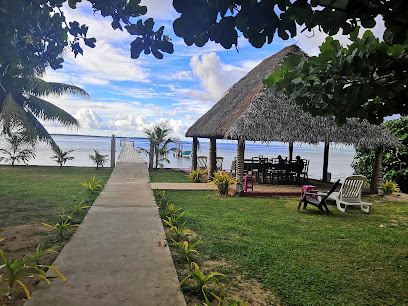
Pension I Love Maupiti
Discover the serene beauty and authentic charm of Pension I Love Maupiti, your perfect getaway in French Polynesia's stunning landscapes.

Maupiti Village
Experience the tranquil beauty of Maupiti Village, a hidden gem in French Polynesia, offering stunning beaches and rich Polynesian culture.

Unmissable attractions to see
Maupiti Island
Discover Maupiti: French Polynesia's hidden gem with pristine beaches, turquoise lagoons, and authentic Polynesian culture, away from the crowds.
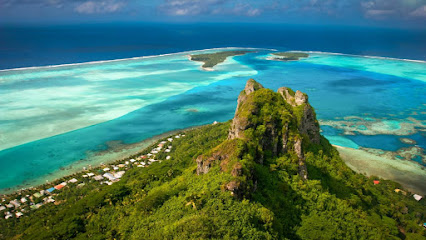
Mt. Teurafaatiu Summit
Hike Maupiti's highest peak for stunning 360° views of the lagoon, motus, and the Pacific Ocean. A rewarding challenge in a Polynesian paradise.
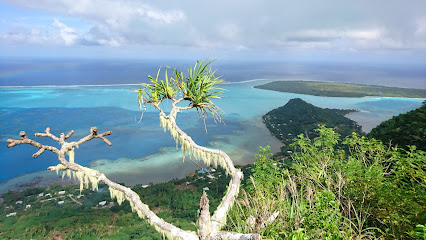
Terei'a Beach
Discover the serene beauty of Terei'a Beach in French Polynesia, where pristine sands meet crystal-clear waters for an unforgettable tropical escape.
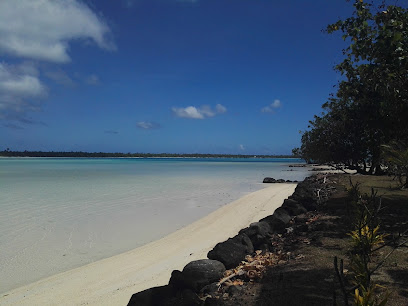
Palais de la Mer
Explore the artistic marvels of Palais de la Mer, a sculptor's paradise in Maupiti, reflecting the vibrant culture and stunning beauty of French Polynesia.
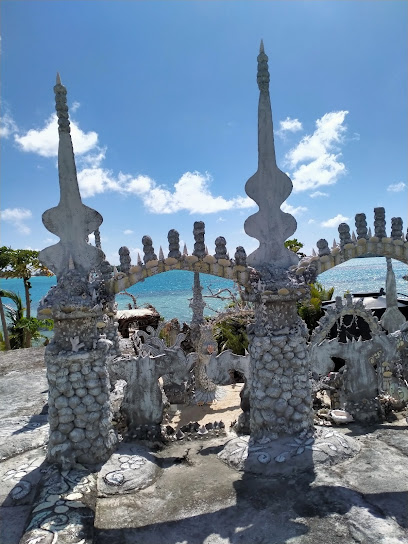
Sammy maupiti tours
Explore Maupiti's stunning lagoon with Sammy Maupiti Tours: Snorkel with manta rays and discover vibrant coral gardens in paradise.
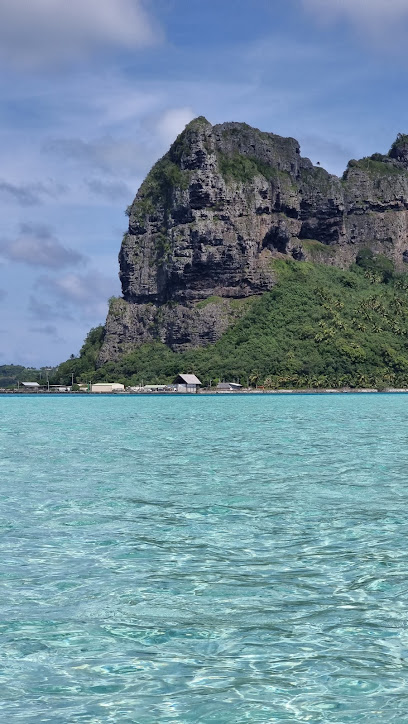
Maupiti, French Polynesia
Discover Maupiti: An authentic Polynesian paradise with pristine beaches, lush landscapes, and a vibrant culture untouched by mass tourism.
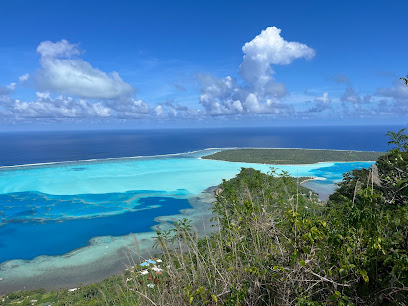
Te'urafa'atiu
Experience the breathtaking beauty and adventure of Te'urafa'atiu, Maupiti's stunning mountain peak offering panoramic views and a unique hiking experience.
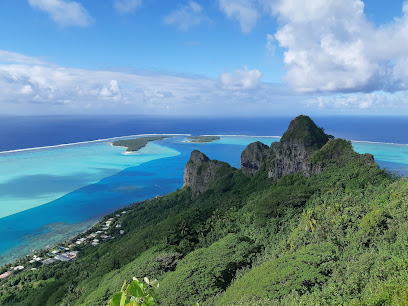
Essential places to dine
Maupiti Diving Center
Explore stunning coral reefs and vibrant marine life at Maupiti Diving Center – your gateway to unforgettable underwater adventures in French Polynesia.
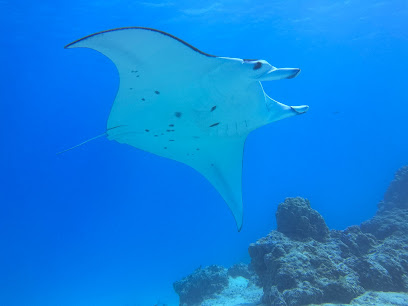
Maupiti Island
Discover the tranquil beauty of Maupiti Island in French Polynesia—where stunning lagoons meet rich cultural experiences.
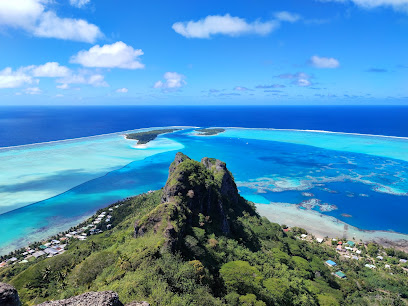
Pension Taravanui
Discover tranquil stays at Pension Taravanui in Maupiti, where stunning landscapes meet warm hospitality for an unforgettable getaway.
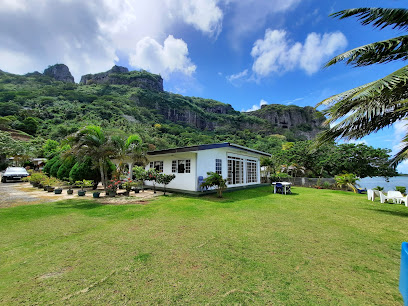
Pension Papahani
Discover tranquility and authentic Polynesian culture at Pension Papahani on beautiful Maupiti Island.

Pension Tereia
Discover tranquility at Pension Tereia, your cozy bed & breakfast retreat on beautiful Maupiti Island in French Polynesia.
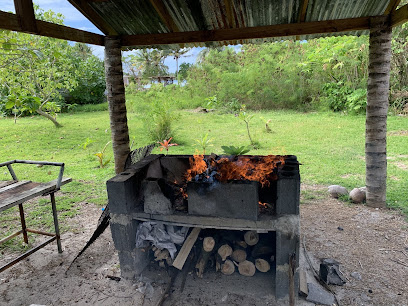
Chez Mimi
Discover authentic Polynesian cuisine at Chez Mimi on Maupiti Island – where every meal is an unforgettable taste of paradise.
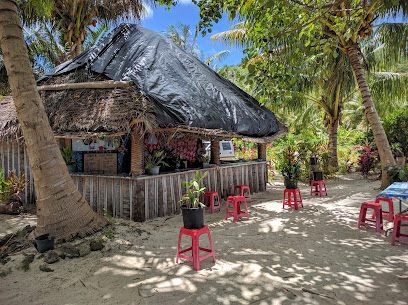
Pension Espace Beach
Experience the serene charm of Pension Espace Beach in Maupiti – your perfect retreat in French Polynesia's tropical paradise.

Pension Tautiare Village
Experience serene island living at Pension Tautiare Village in Maupiti, where comfort meets stunning natural beauty.
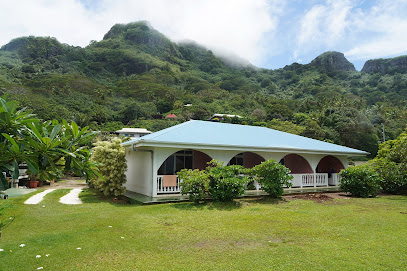
Pension Ludo et Moyra
Discover serenity at Pension Ludo et Moyra on Maupiti Island - your perfect Polynesian getaway surrounded by breathtaking beauty.
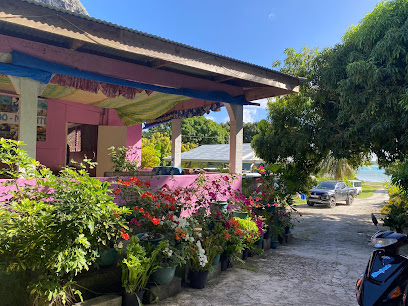
Le Kuriri
Discover serenity at Le Kuriri - your peaceful retreat in Maupiti's stunning landscapes.
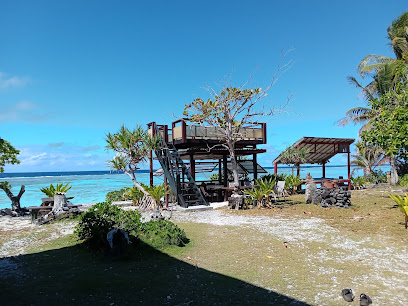
Fare Pae'ao / Maupiti trip
Discover tranquility at Fare Pae'ao: A charming bed & breakfast with boat tours, camping, and spa experiences in beautiful Maupiti.

Tarona
Experience authentic Polynesian cuisine at Tarona in Maupiti – where every dish tells a story and every bite is a journey.
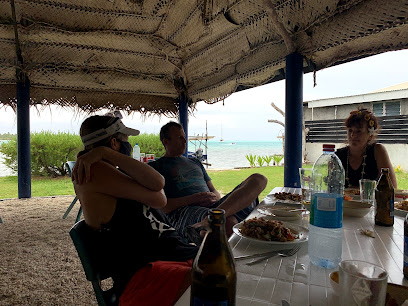
Pension I Love Maupiti
Discover tranquility at Pension I Love Maupiti – your cozy retreat in stunning French Polynesia, surrounded by breathtaking natural beauty.

Pension Teheimana
Discover tranquility at Pension Teheimana in Maupiti - your perfect escape into paradise with stunning views and warm hospitality.
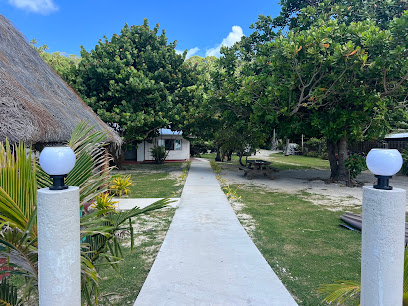
Maupiti Residence
Experience tranquility and local charm at Maupiti Residence – your serene retreat in French Polynesia's stunning landscapes.
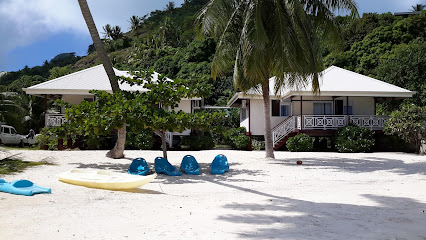
Markets, malls and hidden boutiques
Vaima Shopping Center
Discover the vibrant Vaima Shopping Center in Papeete, where shopping meets cultural experiences in the heart of French Polynesia.
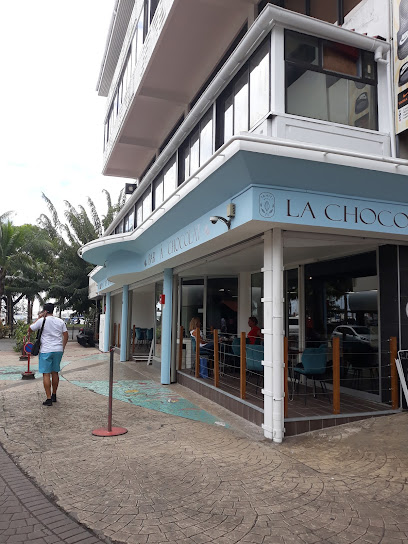
Maupiti Diving Center
Experience the breathtaking underwater beauty of Maupiti at the Maupiti Diving Center, a premier diving destination in French Polynesia.
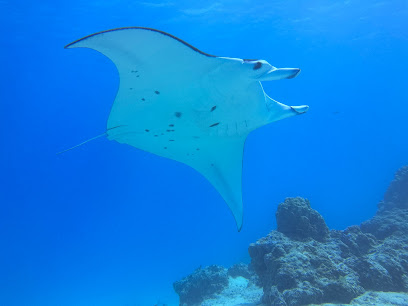
Tahiti Pearl Market
Explore the exquisite Tahitian pearls and authentic jewelry at Tahiti Pearl Market, a jewel in the heart of Papeete, French Polynesia.
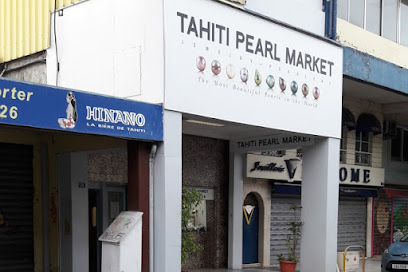
Fare Pae'ao / Maupiti trip
Discover a serene escape at Fare Pae'ao in Maupiti, where breathtaking views meet adventurous experiences in the heart of French Polynesia.
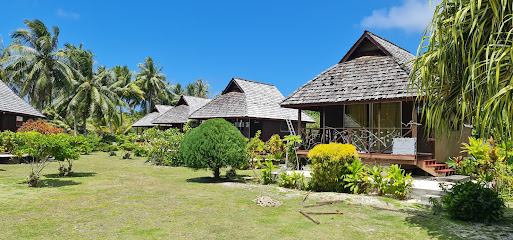
Maupiti Residence
Discover tranquility and breathtaking views at Maupiti Residence, a charming guest house in the heart of paradise.
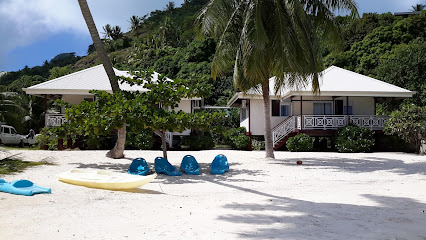
Teavanui Shop Bora Bora
Explore the vibrant world of Polynesian handicrafts at Teavanui Shop in Bora Bora, where every purchase supports local artisans and culture.
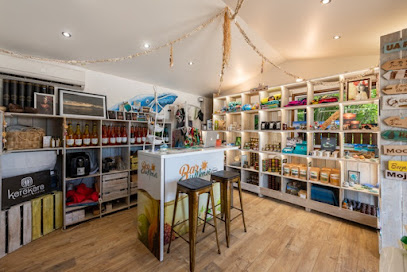
Maupiti, French Polynesia
Experience the tranquil beauty of Maupiti, a hidden gem in French Polynesia, perfect for relaxing beach getaways and cultural exploration.
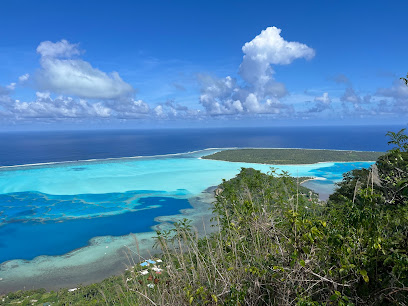
Bora Spirit T-Shirt & Souvenirs
Discover unique custom t-shirts and charming gift baskets at Bora Spirit T-Shirt & Souvenirs in beautiful Bora-Bora, French Polynesia.
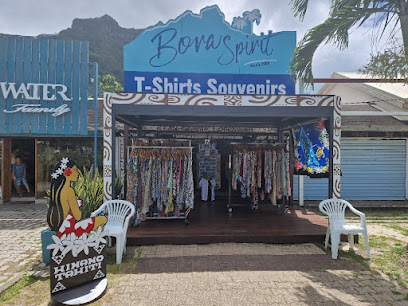
Boutique Bora Bora
Explore Boutique Bora Bora for unique souvenirs and local crafts that celebrate the beauty of Polynesian culture in a stunning tropical setting.
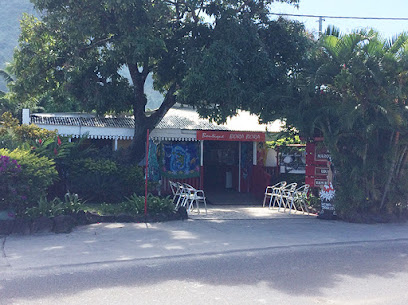
FARE TOA TARAVA
Discover the charm of Maupiti at Fare Toa Tarava, where local craftsmanship and authentic Polynesian culture meet.
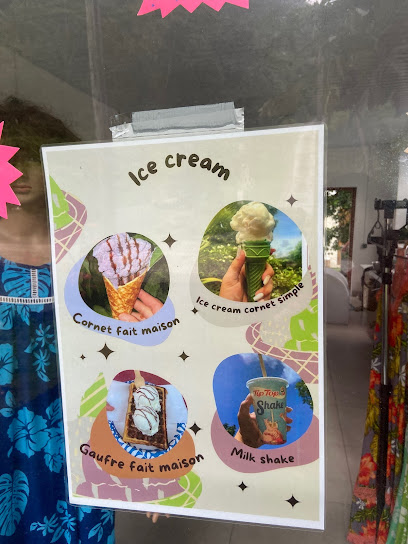
Boutique Chin Lee
Explore unique gifts and local crafts at Boutique Chin Lee, the premier gift shop in Bora Bora, where every item tells a story.
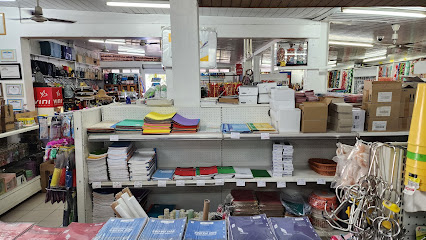
Cristal Kayak et Artisanat
Explore the breathtaking lagoons of Maupiti Island with kayak rentals and discover unique local craftsmanship at Cristal Kayak et Artisanat.

Super Patito
Experience the authentic taste of Maupiti at Super Patito, your go-to grocery store for local delights and fresh produce in French Polynesia.
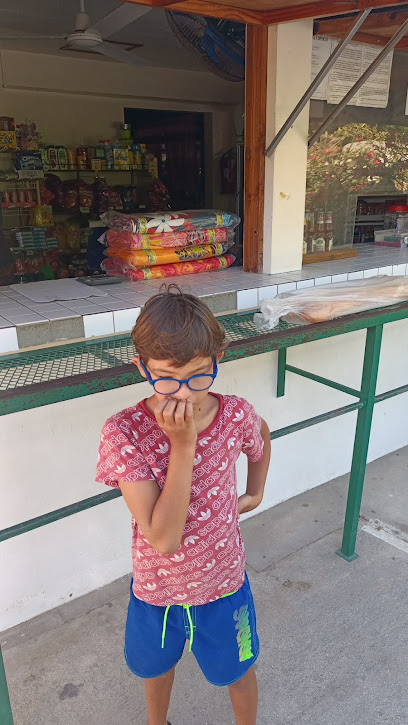
Supérette
Explore the vibrant culture of Maupiti at Supérette, your local general store offering essentials and unique local products.

Purotu shop
Explore local craftsmanship and essential tools at Purotu Shop, a charming hardware store in the heart of Maupiti, French Polynesia.
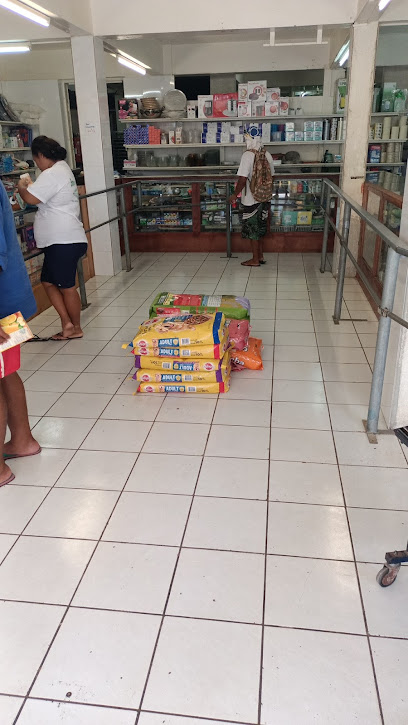
Essential bars & hidden hideouts
Pension Taravanui
Discover the tranquility of Pension Taravanui, your serene lodging option on the beautiful Maupiti Island in French Polynesia.
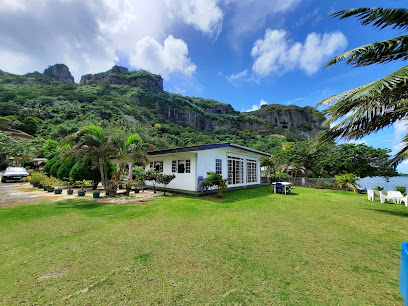
Mt. Teurafaatiu Summit
Discover breathtaking views and adventure at Mt. Teurafaatiu Summit, a hiker's paradise on Maupiti Island, French Polynesia.
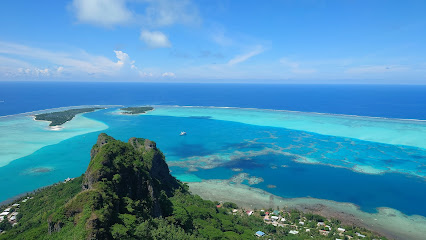
Chez Mimi
Discover the culinary delights of Maupiti Island at Chez Mimi, where local flavors meet breathtaking views in a tropical paradise.
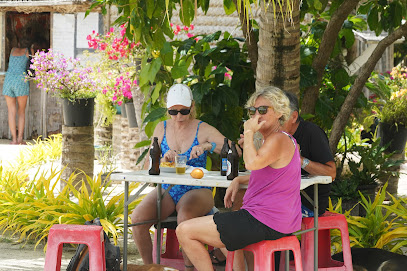
Pension Espace Beach
Discover the tranquil beauty of Maupiti at Pension Espace Beach, your ideal guest house for a memorable Polynesian getaway.

Fare Pae'ao / Maupiti trip
Discover the tranquil charm of Fare Pae'ao in Maupiti, where relaxation meets adventure in the heart of French Polynesia.
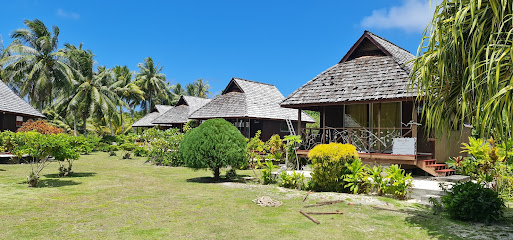
Tarona
Discover the culinary treasures of Tarona in Maupiti, where local flavors meet breathtaking island views for an unforgettable dining experience.
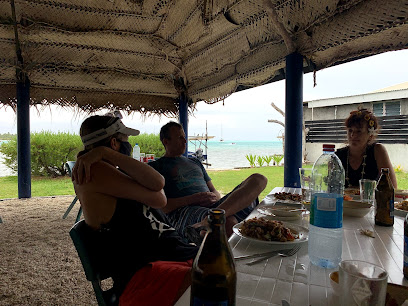
Pension Teheimana
Experience the serene charm of Pension Teheimana in Maupiti, where Polynesian culture meets breathtaking natural beauty.
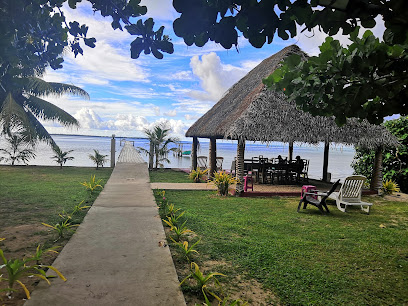
Maupiti Residence
Discover tranquility and adventure at Maupiti Residence, your perfect guest house in the heart of French Polynesia's enchanting island paradise.
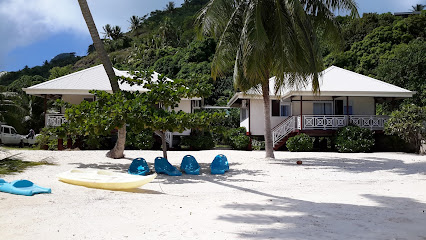
Pension I Love Maupiti
Discover tranquility and authentic Polynesian hospitality at Pension I Love Maupiti, your perfect retreat in paradise.

Maupiti House Tefarearii
Discover the serene beauty of Maupiti House Tefarearii, your perfect bed & breakfast retreat in Polynesia, combining comfort with breathtaking island views.
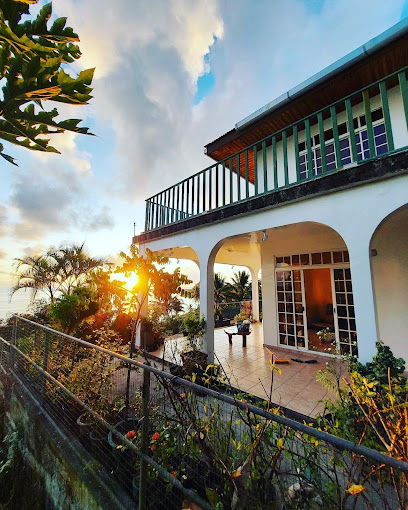
Pension Taputea Maupiti
Discover the serene charm of Pension Taputea Maupiti, a cozy bed & breakfast immersed in the breathtaking beauty of French Polynesia.
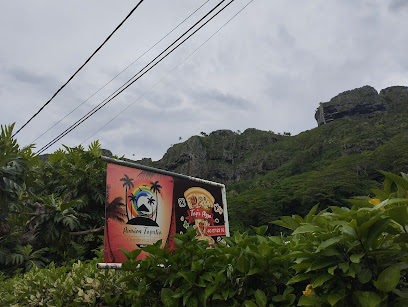
Maupiti, French Polynesia
Explore the untouched paradise of Maupiti, French Polynesia - a serene island escape with stunning lagoons and vibrant culture.
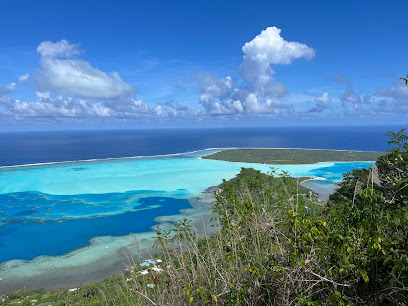
Snack Bouboule
Experience the flavors of Maupiti at Snack Bouboule, the island's beloved fast food destination blending local cuisine with a laid-back vibe.
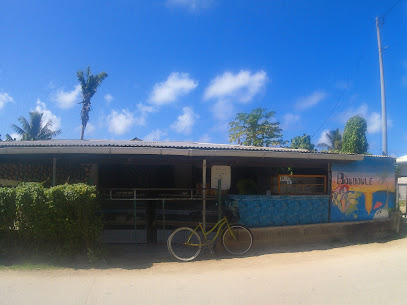
FARE TOA TARAVA
Discover the essence of Maupiti at Fare Toa Tarava, where local crafts and culture come alive in a charming shopping experience.
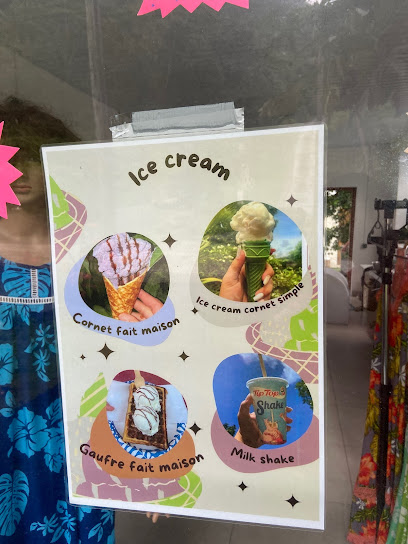
Local Phrases
-
- HelloIa ora na
[Yah ohr-ah nah] - GoodbyeNana
[Nah-nah] - YesE
[Eh] - NoAita
[Eye-tah] - Please/You're welcomeMauruuru
[Mah-roo-roo] - Thank youMauruuru
[Mah-roo-roo] - Excuse me/SorryPardon
[Pahr-dohn] - How are you?Eaha te huru?
[Eh-ah hteh hoo-roo] - Fine. And you?Maitai. O oe?
[My-tah-ee. Oh eh] - Do you speak English?Ua haere oe i te reo anglais?
[Oo-ah hah-eh-reh oh-eh ee teh reh-oh ahng-lay] - I don't understandAita au maramarama
[Eye-tah oh mah-rah-mah-rah-mah]
- HelloIa ora na
-
- I'd like to see the menu, pleaseE te faaea i te meniu, maruuru
[Eh teh fah-ah-eh ee teh meh-nee-oo mah-roo-roo] - I don't eat meatAita au haere i te manu
[Eye-tah oh hah-eh-reh ee teh mah-noo] - Cheers!Manuia!
[Mah-noo-ee-ah] - I would like to pay, pleaseE te soli, maruuru
[Eh teh soh-lee mah-roo-roo]
- I'd like to see the menu, pleaseE te faaea i te meniu, maruuru
-
- Help!Aita!
[Eye-tah] - Go away!Haere atu!
[Hah-eh-reh ah-too] - Call the Police!Taio i te faraoti!
[Tie-oh ee teh fah-rah-oh-tee] - Call a doctor!Taio i te taata hau!
[Tie-oh ee teh tah-ah-tah how] - I'm lostUa haere i au i roto i te fenua
[Oo-ah hah-eh-reh ee oh ee roh-toh ee teh feh-noo-ah] - I'm illUa paura au
[Oo-ah pah-oo-rah oh]
- Help!Aita!
-
- I'd like to buy...E te hana i te...
[Eh teh hah-nah ee teh...] - I'm just lookingUa haere au i te uru
[Oo-ah hah-eh-reh oh ee teh oo-roo] - How much is it?Eaha te moni?
[Eh-ah teh moh-nee] - That's too expensiveTeie te moni rahi roa
[Teh-ee teh moh-nee rah-hee roh-ah] - Can you lower the price?Haere iho oe i te moni?
[Hah-eh-reh ee-hoh oh-eh ee teh moh-nee]
- I'd like to buy...E te hana i te...
-
- What time is it?E aha te ora?
[Eh ah-hah teh oh-rah] - It's one o'clockE tahi ora
[Eh tah-hee oh-rah] - Half past (10)E haapiti (10)
[Eh hah-ah-pee-tee (10)] - MorningPoipoi
[Poy-poy] - AfternoonAparaatai
[Ah-pah-rah-tah-ee] - EveningAhiahi
[Ah-hee-ah-hee] - YesterdayArohe
[Ah-roh-heh] - TodayAtea
[Ah-teh-ah] - TomorrowApa
[Ah-pah] - 1Tahi
[Tah-hee] - 2Rua
[Roo-ah] - 3Toru
[Toh-roo] - 4Fa
[Fah] - 5Rima
[Ree-mah] - 6Ono
[Oh-no] - 7Fitu
[Fee-too] - 8Varu
[Vah-roo] - 9Iva
[Ee-vah] - 10Aho
[Ah-ho]
- What time is it?E aha te ora?
-
- Where's a/the...?E te aha i te...?
[Eh teh ah-hah ee teh...?] - What's the address?E aha te tuhinga?
[Eh ah-hah teh too-heen-gah] - Can you show me (on the map)?Haere iho oe i te mahere?
[Hah-eh-reh ee-hoh oh-eh ee teh mah-heh-reh] - When's the next (bus)?A te aha te parau?
[Ah teh ah-hah teh pah-rah-oo] - A ticket (to ....)E te moni (i te...)
[Eh teh moh-nee ee teh...]
- Where's a/the...?E te aha i te...?
History of Maupiti
-
Maupiti, part of the Society Islands, was first settled by Polynesians around 850 AD. These early inhabitants navigated vast ocean distances using traditional voyaging canoes, guided by the stars, ocean currents, and bird flight patterns. The island's archaeological sites, such as marae (sacred temple sites), attest to its rich Polynesian heritage.
-
Maupiti was first encountered by Europeans in 1767 when British navigator Samuel Wallis sighted the island aboard the HMS Dolphin. This marked the beginning of European awareness of Maupiti, leading to subsequent visits by explorers, including the famous Captain James Cook in the late 18th century.
-
In the early 19th century, Protestant missionaries from the London Missionary Society arrived in Maupiti. They played a significant role in converting the island's inhabitants to Christianity, which led to the establishment of churches and the decline of traditional Polynesian religious practices.
-
Maupiti became part of French Polynesia following the declaration of a French protectorate over the Society Islands in 1842. The French administration brought changes to the island's governance, economy, and social structures, integrating Maupiti more closely with the broader colonial framework.
-
During World War II, French Polynesia, including Maupiti, played a strategic role in the Pacific theater. Although the island itself saw limited direct military activity, the war brought increased American presence and infrastructure developments in the region, impacting the local economy and way of life.
-
The post-war period saw significant modernization efforts in Maupiti. Infrastructure improvements, such as the construction of roads and an airstrip, facilitated better connectivity and tourism development. These changes have helped preserve the island's natural beauty while introducing modern amenities for both locals and visitors.
-
In recent decades, there has been a resurgence in efforts to preserve Maupiti's unique cultural heritage. Local initiatives focus on maintaining traditional crafts, dance, and music, as well as protecting the island's archaeological sites. These efforts aim to balance development with the preservation of Maupiti's rich cultural identity.
Maupiti Essentials
-
Maupiti is an island in French Polynesia, and the most common way to reach it is by air. Air Tahiti operates flights from Tahiti (Papeete) to Maupiti Airport (MAU), which is located on the islet of Motu Tuanai. These flights are not daily, so it is advisable to check the schedule and book in advance. Alternatively, you can reach Maupiti by ferry from Bora Bora; however, this option is less frequent and takes longer.
-
Maupiti is a small island, and the best way to get around is by bicycle or on foot. Bicycles can be rented from local guesthouses. There are no public buses on Maupiti, but you can hire a taxi for specific trips. Boat trips are also popular for exploring nearby islets and lagoons. Car rentals are not available on the island, but some accommodations offer shuttle services.
-
The official currency in Maupiti is the CFP Franc (XPF). Credit cards are accepted in some hotels and restaurants, but it is advisable to carry cash, especially for smaller establishments and local markets. There are no ATMs on Maupiti, so make sure to withdraw sufficient cash before arriving. Some guesthouses and shops may accept Euros or US Dollars, but it is best to have local currency.
-
Maupiti is generally a very safe destination for tourists. Crime rates are extremely low, and the island community is welcoming and friendly. However, it is always advisable to take standard precautions such as not leaving valuables unattended and being aware of your surroundings. There are no specific high-crime areas targeting tourists on Maupiti.
-
In case of emergency, the local emergency number is 15 for medical assistance, 17 for police, and 18 for fire services. There is a small medical clinic on the island, but for serious medical emergencies, evacuation to a larger island or Tahiti may be necessary. It is highly recommended to have travel insurance that covers medical emergencies and evacuation. Pharmacies are limited, so bring any necessary medications with you.
-
Fashion: Do dress modestly, especially in villages and public areas. Swimwear is appropriate only at the beach. Religion: Do respect local customs and traditions. If visiting a church, dress conservatively and be quiet. Public Transport: There is no public transport system, but do respect private transport services and schedules. Greetings: Do greet locals with a friendly 'Ia Orana' (hello) and a smile. Eating & Drinking: Do try local dishes and accept food offerings graciously. Don't waste food, as it is considered disrespectful.
-
To experience Maupiti like a local, stay in family-run guesthouses (pensions) where you can enjoy traditional Polynesian hospitality. Participate in community activities such as fishing, weaving, or cooking to learn about local culture. Visit the local markets for fresh produce and handmade crafts. Explore the island's natural beauty by hiking up Mount Teurafaatiu for stunning views or snorkeling in the lagoon to see vibrant marine life.
Trending Landmark in Maupiti
Nearby Cities to Maupiti
-
Things To Do in Bora Bora
-
Things To Do in Raiatea
-
Things To Do in Huahine
-
Things To Do in Moorea
-
Things To Do in Tetiaroa
-
Things To Do in Papeete
-
Things To Do in Tahiti
-
Things To Do in Rangiroa
-
Things To Do in Matavera
-
Things To Do in Ngatangiia
-
Things To Do in Muri
-
Things To Do in Avarua
-
Things To Do in Takitumu
-
Things To Do in Nikao
-
Things To Do in Avatiu




